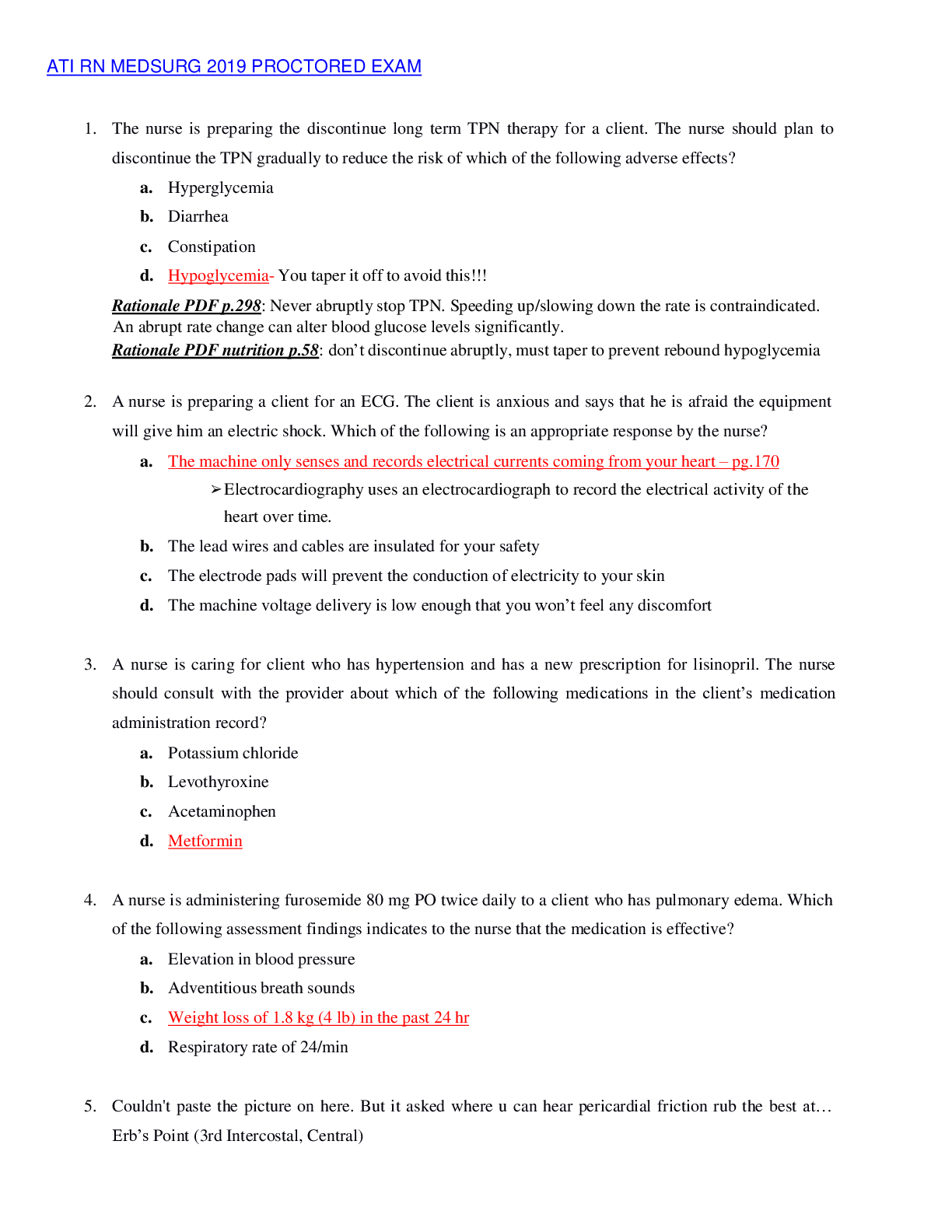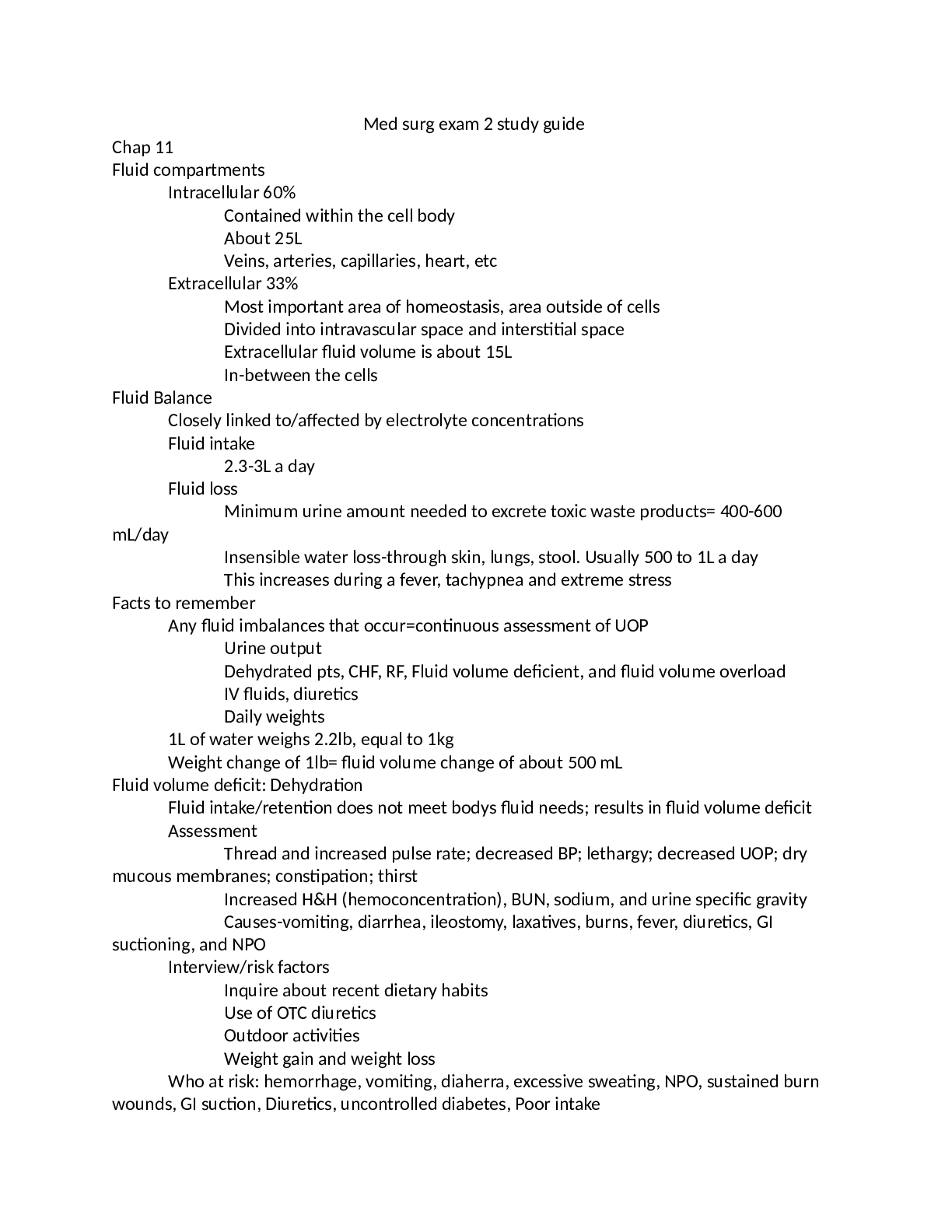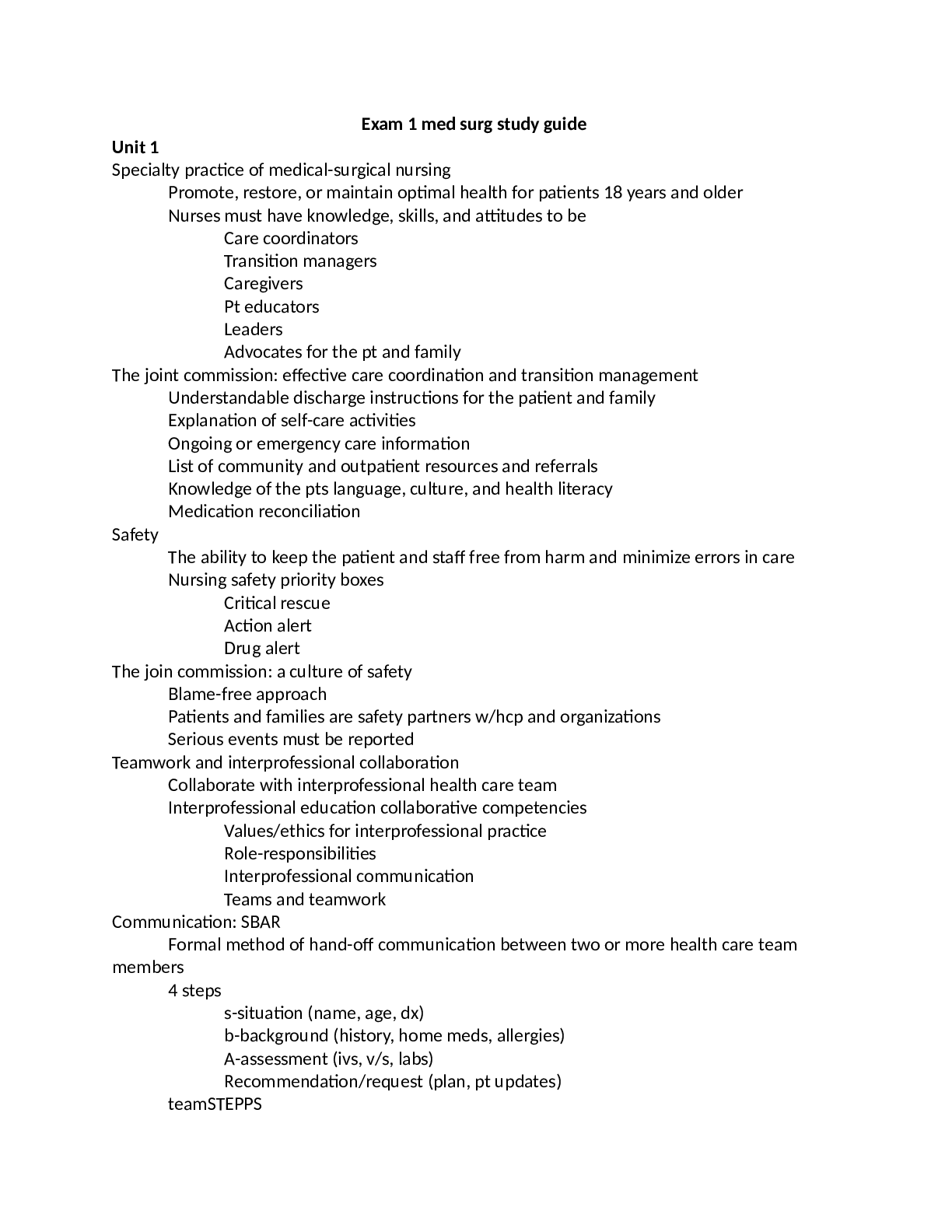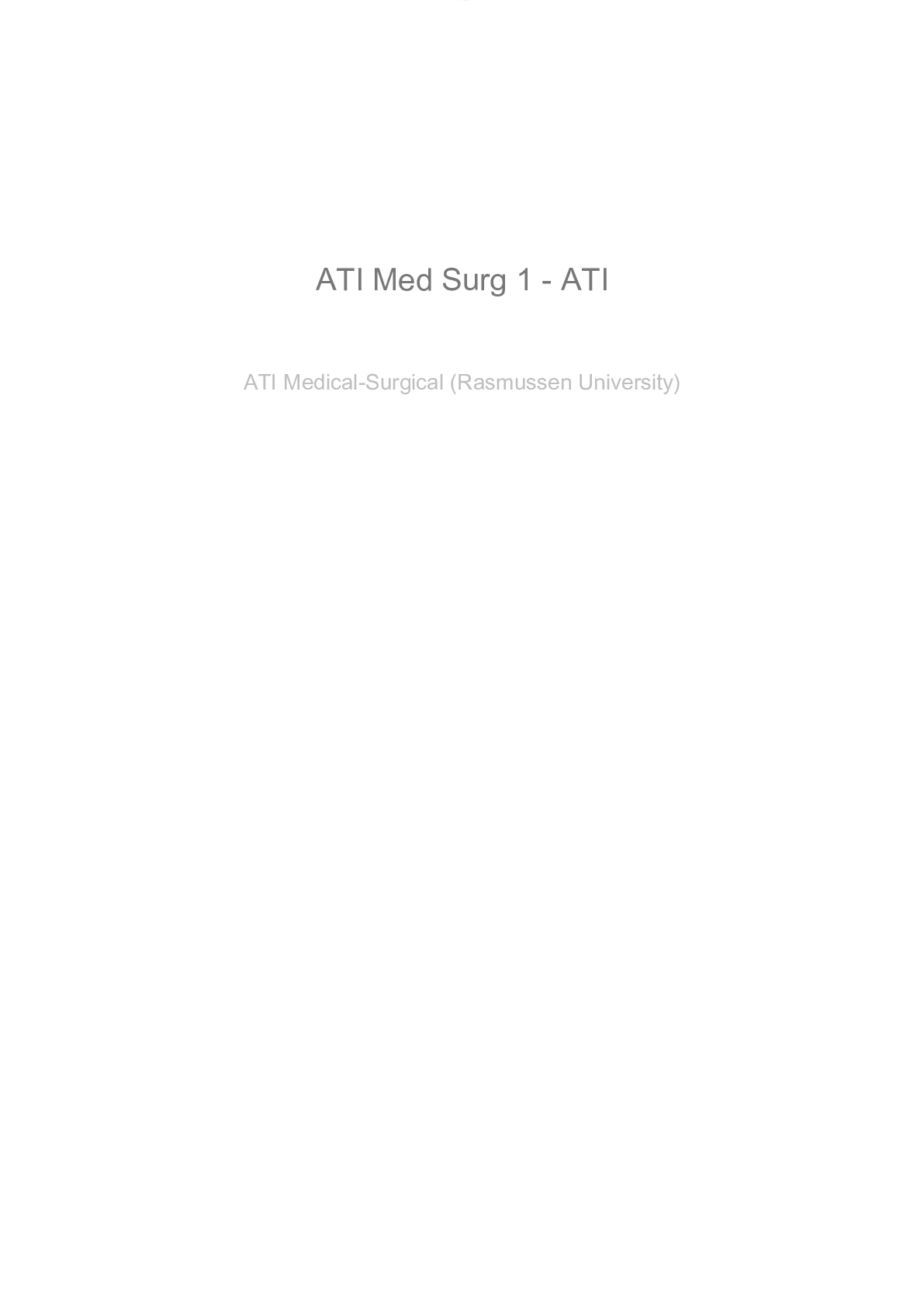*NURSING > MED-SURG EXAM > Nursing 120 Med Surg 1 Quiz 1 Questions and Answers- West Coast University (All)
Nursing 120 Med Surg 1 Quiz 1 Questions and Answers- West Coast University
Document Content and Description Below
The patient tells the nurse in the preoperative setting that she has noticed she has a reaction when wearing rubber gloves. What is the most appropriate intervention? a. Notify the surgeon so the c... ase can be cancelled. b. Ask additional questions to assess for a possible latex allergy. c. Notify the OR staff immediately so that latex-free supplies can be used. d. No intervention is needed because the patient's rubber sensitivity has no bearing on surgery. Correct answer: b Rationale: The nurse should ask additional screening questions to determine the patient's risk for a latex allergy. Latex precaution protocols should be used for patients identified as having a positive latex allergy test result or a history of signs and symptoms related to latex exposure. Many health care facilities have created latex-free product carts that can be used for patients with latex allergies. A 59-year-old man is scheduled for a herniorrhaphy in 2 days. During the preoperative evaluation, he reports that he takes ginkgo daily. What is the priority intervention? a. Inform the surgeon, since the procedure may need to be rescheduled. b. Notify the anesthesia care provider, since this herb interferes with anesthetics. c. Ask the patient if he has noticed any side effects from taking this herbal supplement. d. Tell the patient to continue to take the herbal supplement up to the day before surgery. Correct answer: a Rationale: Ginkgo can increase bleeding during and after surgery. The surgeon should determine how long it should be discontinued before surgery. A 17-year-old patient with a leg fracture is scheduled for surgery. She reports that she is living with a friend and is an emancipated minor. She has a statement from the court for verification. Which intervention is most appropriate? a. Witness the permit after consent is obtained by the surgeon. b. Call a parent or legal guardian to sign the permit, since the patient is under 18. c. Obtain verbal consent, since written consent is not necessary for emancipated minors. d. Investigate your state's nurse practice act related to emancipated minors and informed consent. Correct answer: a Rationale: An emancipated minor may sign his or her own permit. The nurse should be available to witness the signature, but no further action is required. A priority nursing intervention to assist a preoperative patient in coping with fear of postoperative pain would be to a. informs the patient that pain medication will be available. b. teach the patient to use guided imagery to help manage pain. c. describe the type of pain expected with the patient's particular surgery. d. explain the pain management plan, including the use of a pain rating scale. Correct answer: d Rationale: If a patient has fear of pain and discomfort after surgery, the nurse should reassure the patient that a pain management plan will be in place. The nurse should teach the patient to ask for medications after surgery when pain is present and assure him or her that taking these medications will not contribute to an addiction. The nurse should instruct the patient on the use of some form of pain rating scale (e.g., 0 to 10, FACES) and to request pain medication before the pain becomes severe. [Show More]
Last updated: 2 years ago
Preview 1 out of 15 pages
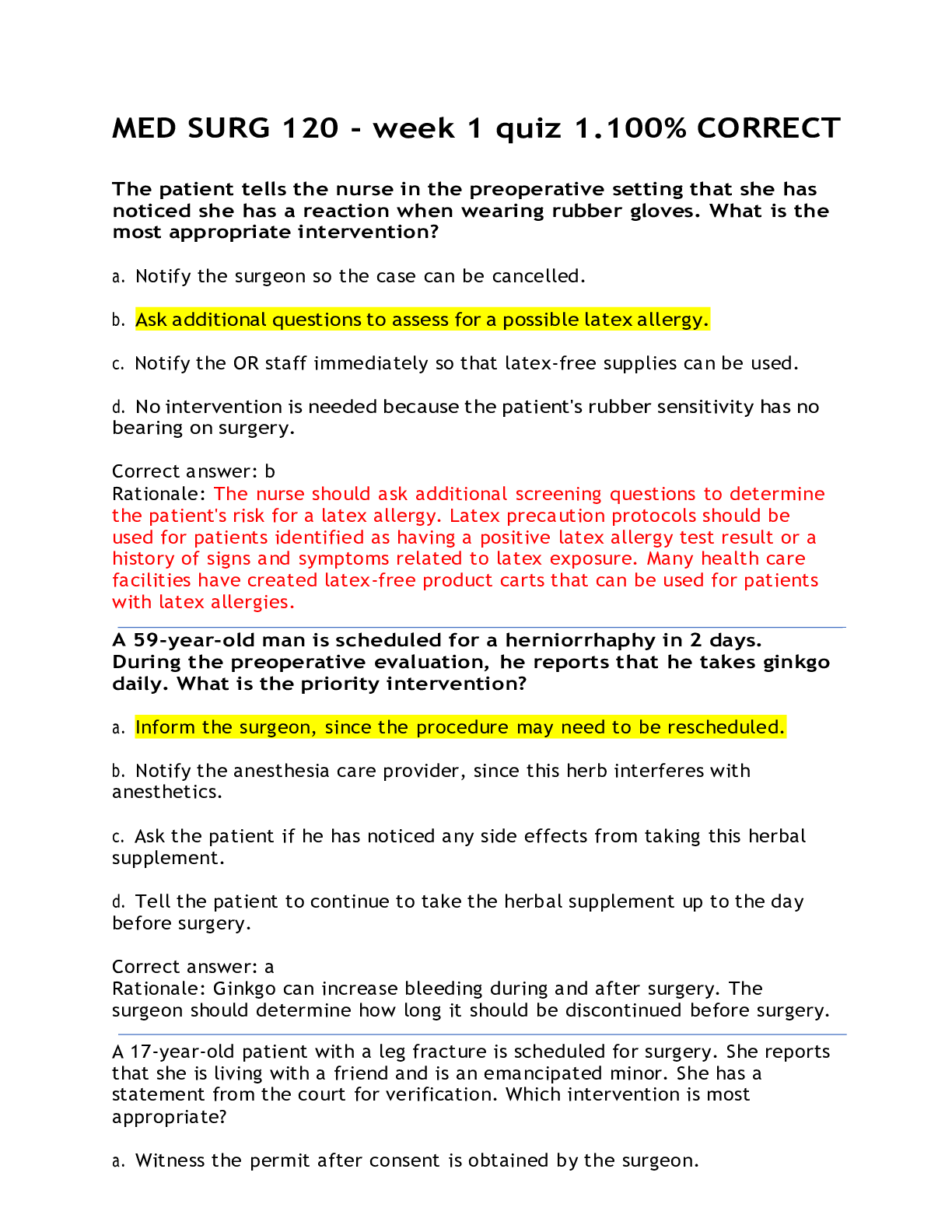
Buy this document to get the full access instantly
Instant Download Access after purchase
Buy NowInstant download
We Accept:

Reviews( 0 )
$15.00
Can't find what you want? Try our AI powered Search
Document information
Connected school, study & course
About the document
Uploaded On
Nov 23, 2022
Number of pages
15
Written in
Additional information
This document has been written for:
Uploaded
Nov 23, 2022
Downloads
0
Views
79



